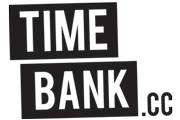e-flux journal #27, issue on alternative economies, 9 September 2011
- Julieta Aranda, Brian Kuan Wood, Anton Vidokle
- Editorial—“Alternative Economies”
- Lawrence LiangIs it a Bird? A Plane? No, it’s a Magic ChairAn alternative economy would have to seek a language that does not just name a different economic process, but names different psychic energies amidst the prediction of gloom that normally accompanies the retreat of capital from all forms of life, including creative life. And yet it remains important to maintain that the mere presence of healthy public institutions does not guarantee a richer cultural life, just as their absence does not necessitate a poverty of cultural life.
- Raqs Media CollectivePlanktons in the Sea: A Few Questions Regarding the Qualities of TimeOur mortality should be the gold standard of our life’s transactions with other lives. It is the metal to which we can peg all our currencies, all our instances of giving and taking to each other. Once we die, we can neither give nor receive, and all attempts to evade this fact, whether through inheritances or estates, are basically arbitrary attempts to pretend that death had in fact not occurred.
- Elizabeth A. PovinelliRoutes/WorldsBefore banks, before currency, valuable things were placed in circulation as lines of credit whose ultimate end was to return to the sender having accumulated surplus value. Participants gave in order to increase their holdings, but this interested act created something more than the interested rational subject—it created moral obligations and social worlds.
- Franco Berardi BifoTime, Acceleration, and ViolenceAlso in 1977, “competition” became the crucial word for the economy, whose project was to submit human relationships to the singular imperative of competition. The term itself became naturalized to the point where saying “competition” was like saying “work.” But competition is not the same as work. Competition is like crime, like violence, like murder, like rape. Competition equals war.
-
Paul Glover
Just as artists are essential to the movement of armies, which gather around music, uniforms, flags, so does the artist have a pivotal role in determining the future of money, and the future of the economy. So why shouldn’t artists create their own money? It will not be Monopoly money, but anti-monopoly money. It will be real money to the extent that people trade with it.

